A Guide to Fencing Investments for Optimal Efficiency

Your livestock fence panels are more than just a boundary; they’re a long-term investment in the safety and efficiency of your animal management system. The materials you select for your fencing can profoundly influence its durability, cost-effectiveness and the overall well-being of your livestock. Making the right choice can be daunting in a market awash with options. Equip yourself with the insights to choose fence pipes that align with your needs and long-term goals.
An Overview of Different Piping Solutions
- New Pipes: The epitome of quality and reliability, new pipes offer unmatched structural integrity.
- Used Pipes: Economical but potentially risky, used pipes often come with hidden wear and tear.
- Secondary or Second Pipes: These are new but have been sidelined due to minor cosmetic or structural issues that do not affect their utility.
- Reject Pipes: These pipes didn’t make the cut in quality tests but can still serve effectively in certain fencing applications.
Why Used Pipe Could Be a Risky Bet?
- Wall Thickness and Wear: Used pipes often have inconsistent wall thickness due to natural degradation, compromising the robustness of your livestock fence panels.
- Longevity Concerns: Lower upfront costs can be deceptive, as used pipes might require more frequent maintenance and earlier replacement.
- Real-World Experiences: There are numerous cautionary tales of farmers grappling with the repercussions of choosing used pipes, from frequent repairs to compromised animal safety.
New Pipes Are the Safest Investment
- Standardized Quality: When you select new livestock fence panels, you opt for certified quality backed by warranties and industry standards.
- Long-Term Value: Though pricier initially, new pipes offer superior longevity and lower maintenance costs, making them a wise financial choice for the long haul.
- Expert Advice: Purchasing new pipes includes the added benefit of professional consultation, providing you with the advice you need to make an optimal choice.
The Middle Ground with Second and Reject Pipes
- Availability and Sourcing: Finding second and reject pipes is generally easier and they offer a decent compromise between quality and cost.
- Sizing Considerations: The range of sizes and types may be limited, requiring you to be more flexible with your fence design.
- Wall Thickness: These pipes usually have reliable wall thickness but may lack the uniformity of brand-new pipes.
Why Should You Invest in the Best Quality Livestock Fence Panels?
- Enhanced Safety for Livestock: High-quality livestock fence panels are designed with the well-being of animals in mind. They offer sturdier construction, meaning fewer gaps and weak spots where animals could escape or injure themselves. Additionally, premium panels often feature smooth edges and are free of sharp elements that could harm your livestock. That creates a secure environment where your animals can roam freely without the risk of injury.
- Greater Longevity and Durability: Quality matters when it comes to the lifespan of your fencing. High-grade materials are weather-resistant and less susceptible to wear and tear. They withstand the harsh elements—extreme heat, cold or rainfall—far better than their low-quality counterparts. This durability translates into fewer repairs and replacements over time, saving you money and the effort of frequent maintenance.
- Cost-Effectiveness in the Long Run: While high-quality panels may require a greater initial investment, their long-term benefits often outweigh the costs. The longevity of quality panels minimizes the frequency of replacements and the reduced need for repairs cuts down on ongoing maintenance costs. Over time, this cost-efficiency becomes evident as you spend less money on upkeep and more time focusing on other aspects of your livestock operation.
Customization Meets Quality
When it comes to livestock fence panels, Bison Pipe offers solutions that are not just high-quality but also budget-friendly. Let us help you create a fencing system tailored to your needs—ensuring safety, durability and long-term value.

